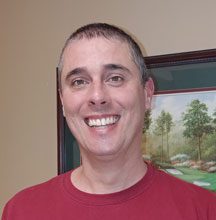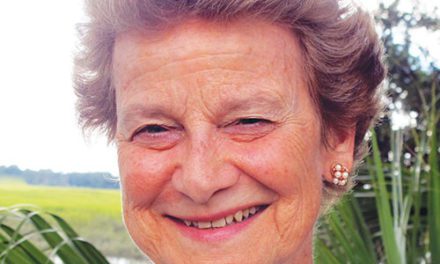 In the spirit of Spirituality, I am pleased, honored, and grateful to welcome special Suddeth family friend and neighbor, urologist Dr. Gwen Choi, M.D. The following is Part Two of our interview. Read Part One here.
In the spirit of Spirituality, I am pleased, honored, and grateful to welcome special Suddeth family friend and neighbor, urologist Dr. Gwen Choi, M.D. The following is Part Two of our interview. Read Part One here.
Q. Can you give us simple, everyday suggestions so as not to end up on the wrong end of your scalpel? In the past, you’ve suggested that better bathroom habits and if it hurts, stop, are good rules of thumb. Can you expand on that? Any alternative forms of therapy, like sound therapy’s binaural beats, you like to recommend?
A. Drink enough water to have pale yellow or clear urine and your risk of kidney stones will be reduced.Take your time and relax when urinating so you can empty your bladder fully. Avoid constipation because this can lead to urinary retention from compression of the urethra (more in men) and an overactive bladder from constant irritation to the bladder from a full rectum (more in women). If your poop looks like rabbit or deer pellets drink more water and eat more fiber! I don’t have a specific alternative therapy for anything but if a patient says something helps them I don’t discourage it unless I know it to be dangerous in some way. If a patient wishes to use alternative therapy (like laetrile) instead of something we have scientifically proven treatments for I will tell the patient I cannot be their physician. There are physicians who practice alternative medicine thosepatients can see instead.
Q. What ignorant thing do you see many patients do that worries you from your side of the surgical sterile field?A. Put off seeing a urologist for a problem until it gets really bad. I have to believe part of this lies in the lack of proactive things we can do as doctors. Teaching young men testicular self-examination, educating fellow physicians about the importance of working up or referring blood in the urine and educating the public about prostate cancer are all things that can help with early diagnosis of problems with the possibility of cure or prevention of worse sequelae (an abnormal condition from a previous disease).
Q. There are doctors and nurses and then there are doctors and nurses like you that are patient advocates. Thank you for being the latter, but what does it take to be an advocate beyond genuine care for another human? A. You have to be willing to speak up and do so with tact and diplomacy.Physicians and nurses can feel defensive if their care is questioned but there is absolutely nothing wrong with asking questions. Hospitals hand out “patient rights” documents to patients that tell them they have a right to understand who is providing their care, and why and to have their questions answered. Hospitals and medical practices are busy places. Mistakes happen because people are human. I always advise anyone using health care take someone with them as a second set of ears, and to write down questions they think of.
Q. Most people have a negative view of big pharma. I doubt you could change that well-earned reputation, even if you wanted to, but could you say something positive the layman may not know about big pharma? A. Removing the huge prices discussion, pharma has done incredible things with new drug development throughout the years. They have resources that universities don’t have so they can do research that might not get funded by a government agency in academia. Pharma sponsors programs that provide certain medications for free or reduced cost to patients. Pharma also provides a great deal of valuable patient education material.
Q. Has being female in the medical community been a thing for you? Do you think even asking a question like that perpetuates bias even further? A. Being a female in medicine is not so much a rarity, but being a female in urology is. Most men are not bothered and many women prefer a woman urologist. I am happy to see anyone, and if my gender makes them uncomfortable I am happy to help find them a practitioner they would be more at ease with. There cannot be a good therapeutic relationship if a patient is inherently uncomfortable with the doctor.
Q. What are your thoughts on doctors who have “bucked the system” and vanished as an apparent result of it? A. Everyone has their own level of tolerance for the innate frustrations of medicine: skyrocketing costs, diminishing insurance coverage with higher co-pays for patients, institutional limitations on care, decreasing compensation for physicians as well as burnout.If a physician decides it is better for him or her to leave medicine and pursue another course, I think this decision should be respected. You can’t know what someone else experiences unless you have actually walked in their shoes.
Q. What questions do you wish patients and loved ones would ask you but they don’t? A. I really can’t think of an answer to this.I find people are very open and feel free to ask questions once we’ve established a relationship. I think they feel safe, and know I am not going to judge them and that I really do have their best interests in mind.- Q. Since you are a caring and loving woman, how do you handle “white coat syndrome” and the blood pressure spikes it creates? A. Acknowledge the spike and find out if this is normal for the patient.I will also repeat the blood pressure at the end of the visit when the patient is (usually) more relaxed. I do like to keep my coat on when examining patients. I don’t want body fluids on me.
Q. Craziest thing you’ve seen in your career? Perhaps something that didn’t happen in your exam room or operating room, but a medical development. A. The widespread use of electronic medical records and documentation.I started with paper charts years ago and now some of the hospitals I work in don’t even have a paper back up plan if the computers fail. It’s amazing how much information is stored electronically now.
Q. Since you specialize as an urologist, you deal with many things that are taboo and cringe worthy for either sex. What one thing would you say to each gender to put their mind at ease? What do you wish each gender would or wouldn’t do? A. Everyone is a variation of normal. I am here to help make your life more comfortable regardless of your gender. If you think something might hurt I am prepared with all kinds of pain managing strategies, no matter how big or small the procedure. I wish women would not apologize for not having shaved their legs and I wish men would not comment that the room must be cold when they are asked to lower their drawers for an exam. I do understand they are nervous and/or uncomfortable, I just hear those comments quite often.
Q. What question that I didn’t ask do you wish I had asked?A. Red or white wine? (Red.)
Thanks to my buddy Dr. Gwen for this interview. It means so much to have an open and sincere communication between Wholly Holisticsand a talented surgeon like yourself. The world needs more Dr. Gwens.




